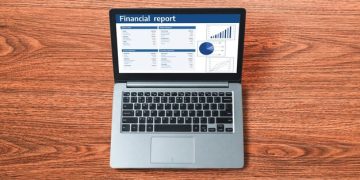Improve Study Habits: Proven Techniques for Academic Success in 2025

Improving study habits for academic success in 2025 involves adopting evidence-based strategies like spaced repetition, active recall, time management, and creating a conducive study environment, tailored to optimize learning and retention.
Want to ace your studies in 2025? It’s not just about putting in long hours, but about mastering effective strategies. Let’s explore how to improve your study habits: proven techniques for academic success in 2025 to maximize your learning potential.
Understanding Your Learning Style
Knowing how you learn best is the first step towards improving your study habits. Everyone absorbs information differently, and identifying your learning style can significantly enhance your comprehension and retention.
Understanding your learning style can transform the way you approach studying, making it more efficient and enjoyable. Let’s delve into the main learning styles and how to tailor your study approach to each.
Visual Learners
Visual learners benefit from seeing information. Charts, diagrams, and videos are excellent tools for reinforcing concepts.
Auditory Learners
Auditory learners learn best by hearing information. Lectures, discussions, and recordings can be highly effective.

- Use visual aids like mind maps and diagrams to organize information.
- Watch educational videos and documentaries related to your subjects.
- Take detailed notes using different colors to highlight key points.
By understanding your preferred learning style, you can tailor your study techniques to optimize your learning experience, making studying more efficient and enjoyable.
Time Management Strategies for Students
Effective time management is essential for academic success. Balancing classes, assignments, extracurricular activities, and personal life requires careful planning and prioritization. Developing strong time management skills can reduce stress and improve overall productivity.
Mastering time management is about more than just scheduling; it’s about prioritizing tasks, setting realistic goals, and creating a study environment that supports your focus.
Prioritize Tasks
Use methods like the Eisenhower Matrix (urgent/important) to determine which tasks need immediate attention.
Set Realistic Goals
Break down large assignments into smaller, manageable tasks with specific deadlines.

Effective time management isn’t just about fitting more into your day; it’s about making the most of your time, ensuring you have time for rest, recreation, and all the things that contribute to your overall well-being.
Creating an Effective Study Environment
The environment in which you study can significantly impact your focus and productivity. A well-organized and comfortable study space can minimize distractions and promote concentration. Consider factors like lighting, noise levels, and ergonomics to create an optimal study setting.
Your study environment should be conducive to focused learning, clear of distractions, and tailored to your personal preferences. Here’s how to optimize your study space:
Minimize Distractions
Turn off notifications on your phone and computer, and inform family members or roommates about your study schedule.
Creating an effective study environment is a personal process that involves identifying what works best for you, prioritizing your comfort and focus, and making adjustments as needed to maintain optimal productivity.
Active Recall and Spaced Repetition Techniques
Active recall involves retrieving information from memory rather than passively rereading notes. Spaced repetition is a learning technique that involves reviewing material at increasing intervals. These methods are highly effective for long-term retention.
Active recall and spaced repetition are powerful strategies for reinforcing learning and enhancing memory. By actively engaging with the material and reviewing it at strategic intervals, you can deepen your understanding and improve long-term retention.
- Use flashcards to test yourself on key concepts and definitions.
- Try the Feynman Technique: Explain the concept in simple terms as if teaching it to someone else.
- Review material at increasing intervals to reinforce memory.
Active recall and spaced repetition are not just about memorizing facts; they’re about deepening your understanding of the material, enhancing your critical thinking skills, and improving your ability to apply what you’ve learned in real-world contexts.
The Importance of Breaks and Self-Care
Taking regular breaks and practicing self-care are crucial for maintaining focus and preventing burnout. Short breaks can improve concentration and reduce mental fatigue. Prioritize sleep, nutrition, and exercise to support your overall well-being and academic performance.
Incorporating breaks and self-care into your study routine is not a luxury; it’s a necessity for sustaining your energy, focus, and motivation over the long term. Here’s why they’re so important:
Short Breaks
Take 5-10 minute breaks every hour to stretch, walk around, or do something relaxing.
Quality Sleep
Aim for 7-9 hours of sleep each night to support cognitive function and memory consolidation.
- Schedule regular breaks into your study sessions.
- Engage in activities that help you relax and recharge.
- Prioritize sleep, nutrition, and exercise for overall well-being.
Self-care is an individualized process, so experiment with different strategies to find what works best for you in balancing your academic pursuits with your overall well-being.
Using Technology to Enhance Your Studies
Technology offers numerous tools and resources to enhance your studies. From online libraries and research databases to note-taking apps and productivity software, technology can streamline your learning process. Use these resources wisely to supplement your study efforts.
Technology offers a wealth of resources for supplementing your learning, improving your efficiency, and connecting with peers. Here’s how to leverage it effectively:
Online Libraries
Access vast collections of books, articles, and research papers through online libraries and databases.
Note-Taking Apps
Use apps like Evernote or OneNote to organize notes, create to-do lists, and collaborate with classmates.
By using technology, you can personalize your learning experience, foster collaboration, and stay up-to-date with the latest resources in your field of study.
| Key Point | Brief Description |
|---|---|
| 💡 Learning Styles | Understand how you learn best (visual, auditory, kinesthetic) to tailor your study techniques. |
| ⏱️ Time Management | Prioritize tasks, set realistic goals, and create a study schedule to balance academics and personal life. |
| 🧠 Active Recall | Test yourself on key concepts regularly to improve long-term retention. |
| 🧘 Self-Care | Take breaks, get enough sleep, and maintain a healthy lifestyle to prevent burnout. |
Frequently Asked Questions
▼
Consider how you best absorb and retain information. Do you prefer visual aids, listening to lectures, or hands-on activities? Online quizzes and assessments can also help you identify your learning style.
▼
Start by prioritizing tasks using methods like the Eisenhower Matrix. Break down large assignments into smaller, manageable tasks, and set specific deadlines for each. Use a planner or digital calendar to schedule your activities.
▼
Choose a quiet, well-lit space free from interruptions. Turn off notifications on your devices, and inform family members or roommates about your study schedule. Use noise-canceling headphones if necessary.
▼
Use flashcards to test yourself on key concepts, or try the Feynman Technique by explaining the concept in simple terms as if teaching it to someone else. Practice retrieving information from memory without immediately looking at your notes.
▼
Self-care is crucial for preventing burnout and maintaining overall well-being. Taking breaks, getting enough sleep, and engaging in stress-reducing activities can improve your focus, mood, and academic performance.
Conclusion
By implementing these proven techniques, you can transform your study habits and achieve academic success in 2025. Remember to tailor your approach to your individual learning style and prioritize self-care to maintain a balanced and effective study routine.





